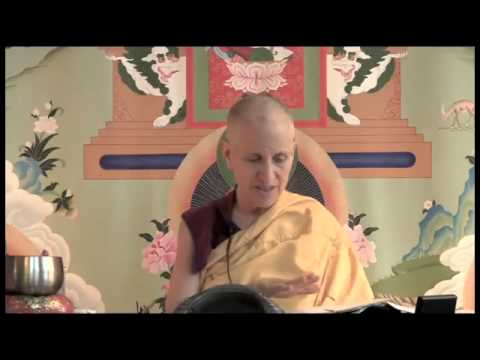Quiz: Seven types of cognizers
Quiz: Seven types of cognizers

Quiz questions for the teachings on the text Presentation of Mind and Awareness, Composite of All the Important Points, Opener of the Eye of New Intelligence by Geshe Jampel Sampel given from August 2012 to April 2013 at Sravasti Abbey. The quiz review begins on March 28, 2013.
General
- Do you know what the seven different types of cognizers are?
- What are the three parts of a syllogism?
- Every time your mind is filled with attachment, craving, anger, jealousy, arrogance, resentment, envy, nostalgia, daydreaming. These are conceptual minds. Look at them and see if they are accurate.
- What is the difference between a conceptual mind that has attachment as one of the mental factors, and the conceptual mind that has loving-kindness as one of the mental factors. Can you differentiate them in your own mind?
- What are the five omnipresent mental Factors?
- What are the four possible ways that things can relate to each other?
- What is the path from wrong consciousness to direct perceiver of emptiness?
- What are the three divisions of mind and awareness?
Direct perceivers
- Think of some examples of your needs. Are they conceptual consciousness? Are they direct perceivers? How does the need relate to feelings? When you have a certain feeling can there be many needs involved and can you pick the need?
- What three things are needed to make a direct perceiver?
- What are the seven types of facsimiles of direct perceivers?
Sense direct perceivers
- What is a prime sense direct perceiver of a familiar object and what is an initial direct perceiver?
Mental direct perceivers
- Can you tell the difference between a direct perceiver and a conceptual mind? Really look at the conceptual mind. Which ones are correct cognizers and which ones aren’t?
- What are the three theories of the way that mental direct perceivers indicated on this occasion are produced? Which one is considered by Tsongkhapa to be correct and why?
- What does indicated on this occasion refer to?
- What does not indicated on this occasion refer too?
Apperceptive direct perceivers
- What is an apperceptive mind?
- What is its function in the Sautrantika system?
- How is it similar to a yogic direct perceiver?
- Other schools disagree with an apperceptive mind. Why do they disagree?
Yogic direct perceivers
- What is the definition of a yogic direct perceiver?
- Yogic direct perceivers are divided into three: what are they?
Inattentive perceivers
- According to Sautrantika, what is a specifically characterized object?
Inferences
- What are the three types of inferential cognizers?
- Think of some inferences especially related to your life. Can you think of some that you adhere to?
- Inferences are relevant to our Dharma practice and our daily life. Often we don’t use them correctly. We come up with wrong reasons. Be aware of when you are using inferences and really check what your reasons are for believing or thinking something.
- What are the three types of phenomena? (in reference to inferences)
- What is the three-fold analysis?
Subsequent cognizers
- A mind on the path of seeing goes to the path of meditation in the same session in the same continuity. In the next session of meditative equipoise, the first moment of realizing emptiness, is it a prime cognizer or a subsequent cognizer. What is the second moment?
- What are the two types of conceptual subsequent cognizers?
- We see something, then we think about it. What type of cognizer is it?
Correct assumer
- What is the definition of a correct assumer?
- What are the three types of correct assumers?
- T or F – Wisdom arisen from hearing is a correct assumer?
- Is a consciousness arisen from hearing a correct assumer?
Doubt
- What are the three ways that doubt is divided?
- Think of some examples of the doubts you have and then do some investigation and see what are your doubts based on. Do they have some kind of valid reasoning behind them?
Wrong consciousness
- When wrong consciousness is divided there are two. What are they?
- Give an example of a non-conceptual wrong consciousness
Venerable Thubten Chodron
Venerable Chodron emphasizes the practical application of Buddha’s teachings in our daily lives and is especially skilled at explaining them in ways easily understood and practiced by Westerners. She is well known for her warm, humorous, and lucid teachings. She was ordained as a Buddhist nun in 1977 by Kyabje Ling Rinpoche in Dharamsala, India, and in 1986 she received bhikshuni (full) ordination in Taiwan. Read her full bio.


